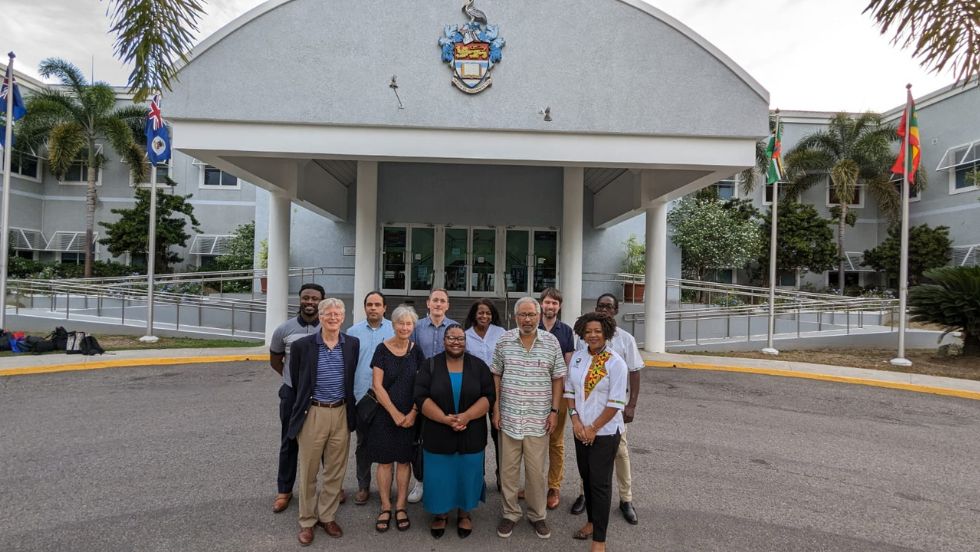
Credit: Mia McMorris
This joint project between the Simmons Center and the International Institute of Social History in Amsterdam seeks to further the development of an integrative transnational and global understanding of the connections between race, slavery, colonialism and capitalism. It brings together senior and more junior scholars who work on these connections in different continents and periods of time. The project started in 2021 and is intended to run to the end of 2024. So far, the working group has met three times (online in 2021 due to Covid, in Amsterdam; the Netherlands in 2022; and in Kingston, Jamaica in 2023).
The following questions have been guiding the work of this group of scholars:
- How may we think about the significance of racial/plantation/colonial slavery not only to the economic transformation of Europe and various forms of dispossession practices of various European colonial regimes, but what were the technologies of rule of these colonial and slave based societies?
- Was anti-black racism simply an ideological tool, or does it have a longer history which then became embedded in the social system? How did anti-black racism relate to other forms of racism (e.g. towards indigenous populations in the Americas or those enslaved in the Indian Ocean area)?
- On a theoretical level, were slavery and colonial production relations themselves capitalist and if so what does this mean both for theoretical and historical understanding of capitalism and its history?
- In what ways was the bio economy of slavery critical and how can we think about slavery, gender, race and reproductive labor?
The 2023 Jamaica workshop was characterized by intense and fruitful debate on the concept of racial capitalism, the multiplicity of forms of racialized social order that emerged in the last four centuries, transitions between regimes of racialized social control, and the meaning of these histories for the present.